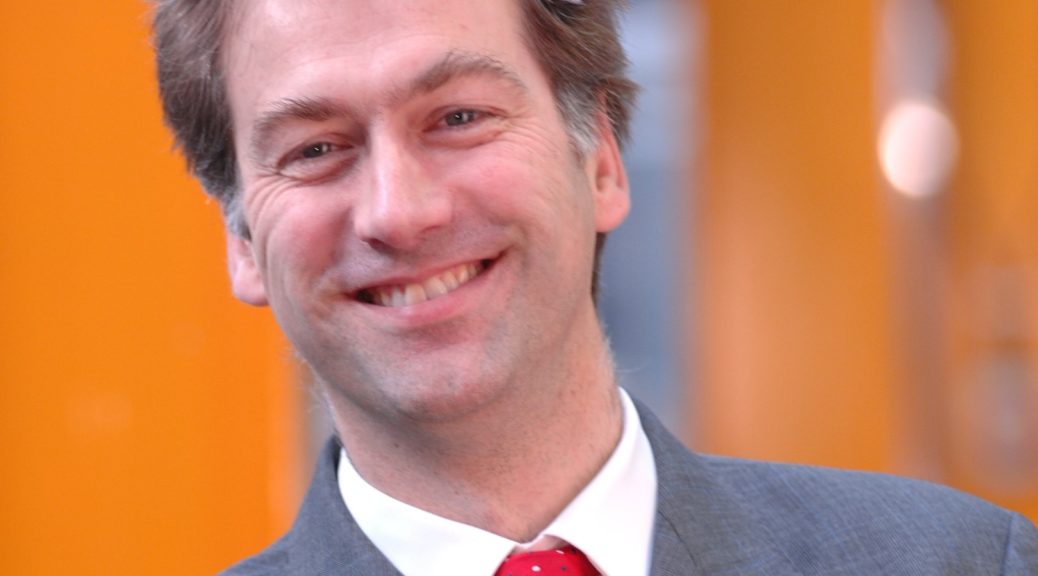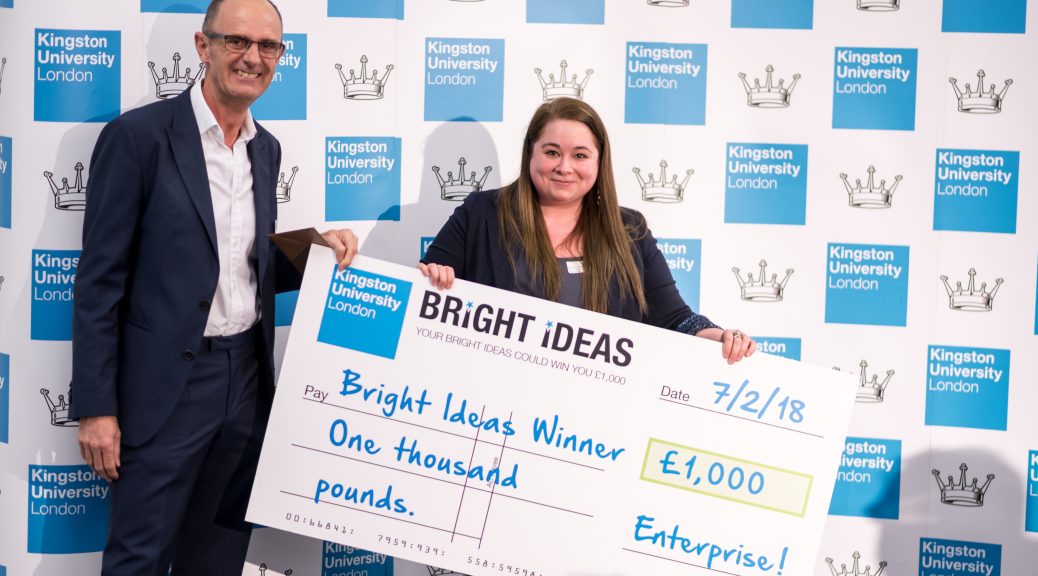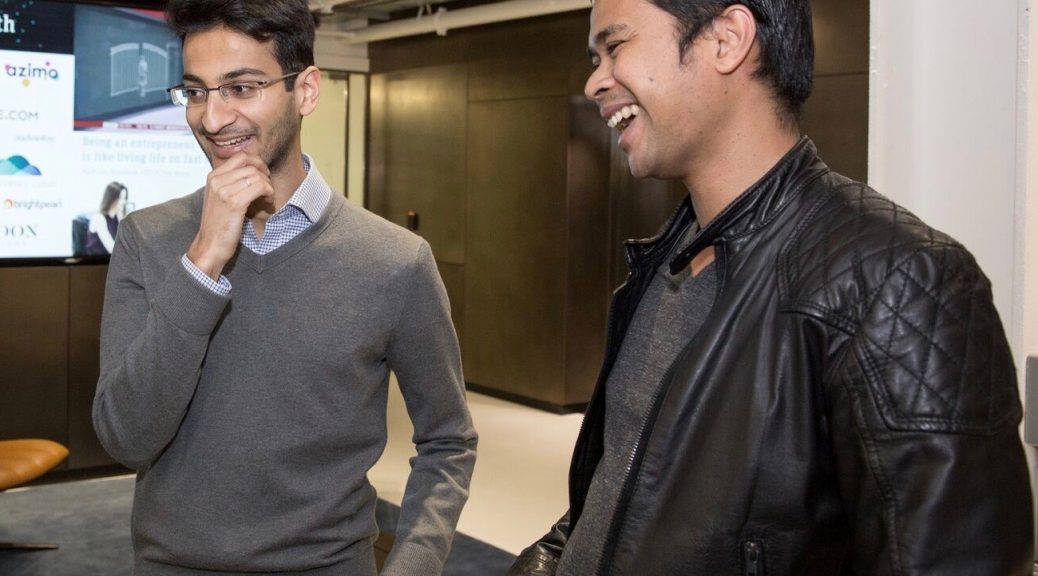 When studying and working towards a successful career, whatever the industry, there are two essential components to reaching your goals. The first port of call is the learning; all the theories, concepts, facts and figures that make up the armoury for your profession. These are the elements of success gained through higher education. However, the second element is more elusive, but just as essential to progress in one’s career – experience. Experience can often be hard to come by, yet having it on your CV is a must for most employers. This is where mentoring can help.
When studying and working towards a successful career, whatever the industry, there are two essential components to reaching your goals. The first port of call is the learning; all the theories, concepts, facts and figures that make up the armoury for your profession. These are the elements of success gained through higher education. However, the second element is more elusive, but just as essential to progress in one’s career – experience. Experience can often be hard to come by, yet having it on your CV is a must for most employers. This is where mentoring can help.
SMF has helped facilitate the career progression of many talented and ambitious young engineers over 30 years. We believe that mentoring can help the mentee stay focused on their goals, boost industry and technical knowledge, and expand personal skills set, enabling them to fast-track their careers and even surpass their original goals.
Case in Point: Chris Shelley and Arnaud Doko
Arnaud Doko, a 27-year-old graduate from the University of Bath, having gained a MEng in Mechanical Engineering in 2016, had his heart set on a mentor with a background in technology and entrepreneurship. Not only was being mentored important to Arnaud, as emulating role models had been crucial to his development up to that point, he also aspired to be a mentor himself one day. This is what SMF looks for, talented young engineers who are passionate about success, but who also want to give back to the engineering industry.
Arnaud’s passion for technology and entrepreneurship stems from his family. He explained: “My goal was always to gain enough knowledge and experience to become a technology-centric entrepreneur, as my father is and his father was before him. I chose the field of mechanical engineering because I perceived it to be objectively useful, sufficiently general for my purposes, and capable of giving me the technical literacy to understand the technologies of our time.”
Arnaud started to expand his skills and experience to further his career ambitions. At university, he became involved in Engineers Without Borders, public-speaking, and education-outreach clubs. He also had huge fun helping to design, build, and race with the Human-Powered Submarine Club! He rounded off these exploits with an ERASMUS exchange semester in Lyon, where his final year project was on a zirconia ceramic.
Arnaud also undertook a placement year within his degree, gaining industry experience at an engineering design consultancy. During that year, he applied to the Royal Academy of Engineering for an Engineering Leadership Advanced Award (ELAA), a financial award given to engineering students, at UK universities, who have shown strong academic performance and leadership potential.
He continued, “I knew that my career success would depend not just on how much I invested in myself and my development, but, more importantly, how much others would be willing to invest in me as well. I saw the ELAA as an opportunity to receive merit-based support to that effect. I was thrilled to be accepted, and used the scholarship to attend several career-developing courses/conferences – a personal highlight was attending the 2015 Global Grand Challenges Summit in Beijing.”
Through the ELAA Programme, Arnaud met SMFs who are involved in the selection process and workshops and quickly realised that he could learn a lot from them. He asked around, looking for an SMF who was based near Bath and who had experience in technology entrepreneurship and was introduced to Chris Shelley, CEO at Dymag Performance Wheels, by SMF Adam Bazire. Chris became Arnaud’s mentor and the rest, as they say, is history!
What does mentoring look like?
The beauty of mentoring is that there is no set structure to it. As long as you are ambitious, open, receptive and ready to learn, then a mentoring relationship can take any form you wish. In the case of Chris and Arnaud, they would meet two to three times a year to discuss Arnaud’s career plans and to explore any questions he had.
Chris also took Arnaud on as an intern, something new for his company at the time. He was given the opportunity to observe the office work environment, work in the factory, and shadow Chris on the day-to-day business. Arnaud explained what led to his internship: “As the summer between my third and fourth year of university approached, I was looking for internships to gain further experience. I wanted something in a new field of technology: Dymag’s latest innovation is a carbon fibre car wheel and that seemed like a great opportunity. I asked Chris if he would consider me interning in the company and he agreed, saying I would need to get “stuck in” right away and work hard – I was ready for that challenge!
“I worked at Dymag for two months and made myself generally useful to the staff – anything that needed doing, I would volunteer for it. I worked in production, did some marketing work, managed some small projects and started learning more about the component-level testing of wheels. The fact that I speak fluent German helped to secure a meeting for Dymag with the German working group of wheel companies, OEMs, TUV and the Frauenhofer Institute, which is developing a common testing standard for carbon fibre wheels.
“I also undertook remote work on Intellectual Property for Dymag during my final year of university. I worked on a wide prior-art patent search of existing carbon wheel technologies and also helped collate information for the final patent text, which Dymag filed. Dymag’s patent has since been granted in the UK and Germany and is pending in several other countries. This was exciting and incredibly valuable experience,” said Arnaud.
Chris was extremely taken with Arnaud as an intern. He was drawn to his positive attitude, enthusiasm, high intellect and his willingness to learn. He was always willing to roll up his sleeves and charmed colleagues and clients alike with his engaging style and sense of humour. This is not only proof that a strong sense of endeavour and positivity is a winning attitude, but also a shining example of how a mentor can serve as the elusive ‘foot in the door’ to the industry.
From intern to full-timer
Not surprisingly, Arnaud’s relationship with Dymag did not end with the internship. Arnaud continued: “The opportunity to join the company full-time came from my positive internship experience – I liked the company and the company liked me. Chris offered me a job and I considered it carefully. I was inspired by the passion in the company and I knew from my internship that I would be given responsibilities that would stretch me and allow me to grow quickly. Plus, I already knew I would have a great boss from whom I would continue to learn.”
In his role as a Project Engineer Arnaud is managing projects for OEMs, which include wheel testing for customer projects and core R&D. He has also been involved in detailed design work on the wheels and on the productionisation of wheel designs in the factory. Alongside these technical roles, he has also become involved in sales, representing Dymag at large automotive exhibitions and liaising directly with OEM customers and B2B business partners. Arnaud said:“One of the most thrilling experiences was setting up and attending meetings between Chris and a large cast wheel company to discuss the possibilities of working together on specific projects.”
What lessons do you learn from a mentor?
In a nutshell, what you get from a mentor that you can’t get from any book or lecture is the expertise of someone who is doing the job you aspire to. Theory is all well and good, but application of those theories is quite another thing. In the case of Arnaud, he learnt a great deal from mentoring. Chris shared the details of his career trajectory, explored his own career failures and successes, and helped to plan Arnaud’s own route to entrepreneurial success. Let’s take a look at the top three lessons learnt on his mentorship journey:
- It’s all about sales! The number one job of the entrepreneur is to sell their vision to the world, be that to customers, investors, business partners, employees or the general public.
- Honesty is everything! When it’s time to have difficult conversations with customers or business partners, you stand a good chance of making progress by being open and honest about the situation. This was a lesson Arnaud learnt by observing Chris’ behaviour and conduct with customers and business partners.
- ‘Multi-tasking’ is not a dirty phrase! It can be tempting to try and only focus on one thing at a time, but business is rarely so simple. The key is to find the most impactful activities to focus on.
Chris also gained much from the experience. He came to appreciate just how valuable mentoring and internships are to the point that now there are several interning opportunities at Dymag, both in engineering and in business. A good mentorship should be a symbiotic process, one that both parties stand to gain from.
Arnaud’s impact as a young professional
Arnaud is a great example of how, with drive, tenacity, enthusiasm and a mentor, you can shoot up the ladder of success quicker than you might think. Here’s what Chris had to say about his newest team member:
“Arnaud is a very self-motivated and ambitious young man, a natural leader of our product testing and certification programme. Also, he has become a leading contributor to Society of Automotive Engineers working group, developing industry standards for the testing of carbon composite wheels. I have received very positive feedback from other committee members with over 30 years’ experience. They compliment him on his extraordinary contribution. He is a born leader and ultimately, he will use his engineering skills and work experience to pursue his dream of developing his own technology business.”
The final word from Arnaud Doko
“Mentoring has helped to accelerate my learning; specifically it has supplemented my engineering knowledge with transferable business principles. Through Chris’ guidance and his willingness to continually expose me to new opportunities, I have leapfrogged ahead in my personal development as an engineer and eventual businessman. Any young person trying to establish a career could benefit from mentorship, but you must be proactive about it and lead the relationship into the direction you want, so your mentor knows how they can support you. If you don’t naturally have access to mentors, put in the effort to find them! It’s a great return on investment on your time – I owe my entire professional trajectory of the last three years to the Royal Academy of Engineering and Chris Shelley.”
Learn more about the SMF MBA Scholarship scheme.






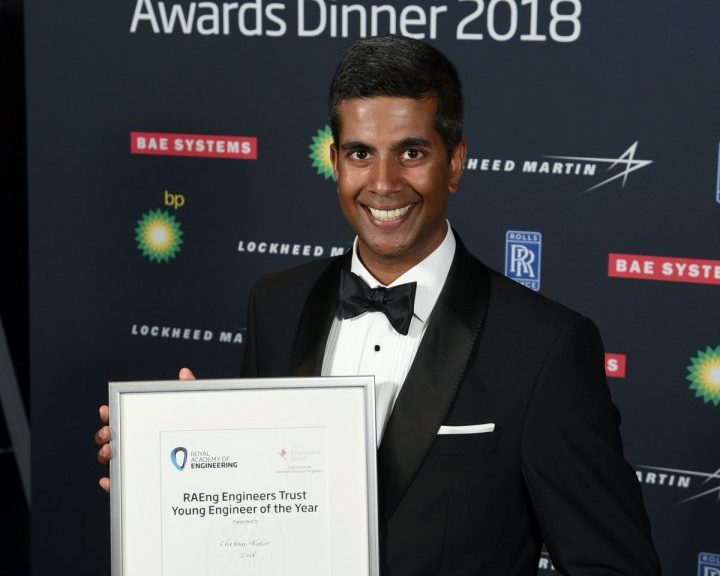



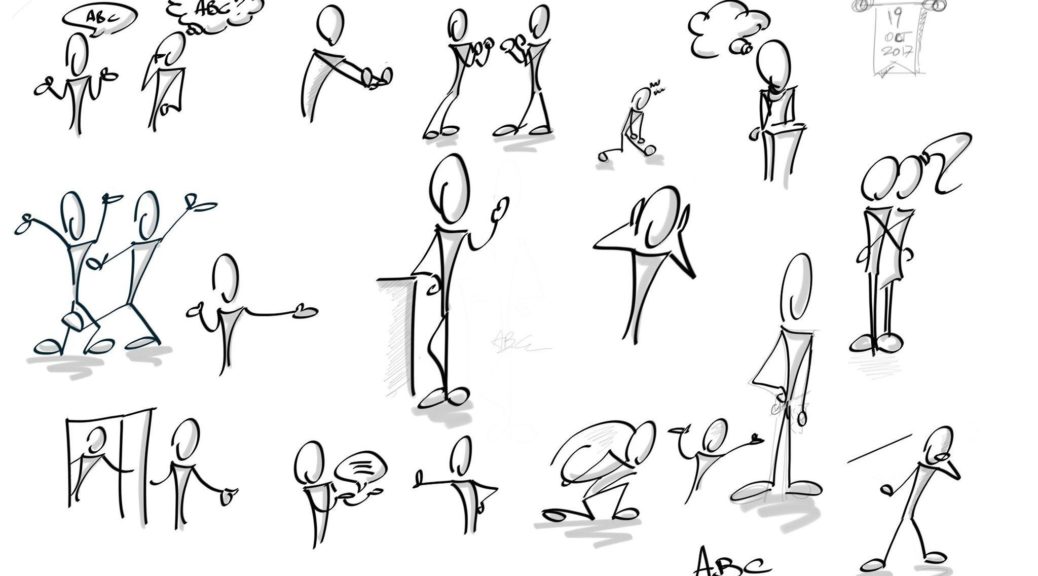

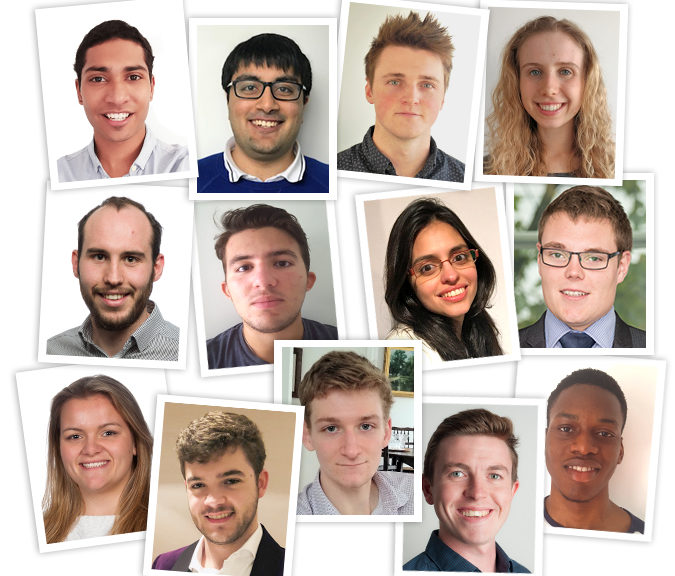


 Vivek Suresh Babu is currently a second-year undergraduate at the University of Warwick studying Manufacturing and Mechanical Engineering (predicted first class). He has secured a summer internship at Rolls-Royce in Civil Aerospace Manufacturing Engineering. He has also been nominated to study abroad in Singapore for the third year of his MEng degree. Vivek plans to use the mentoring opportunity with
Vivek Suresh Babu is currently a second-year undergraduate at the University of Warwick studying Manufacturing and Mechanical Engineering (predicted first class). He has secured a summer internship at Rolls-Royce in Civil Aerospace Manufacturing Engineering. He has also been nominated to study abroad in Singapore for the third year of his MEng degree. Vivek plans to use the mentoring opportunity with 
 Daniella Franklin is due to graduate from Loughborough University in the summer of 2018 with a degree in MEng Product Design Engineering, she is also a current participant in the International Engineering UNITECH program. She intends to use her mentoring with
Daniella Franklin is due to graduate from Loughborough University in the summer of 2018 with a degree in MEng Product Design Engineering, she is also a current participant in the International Engineering UNITECH program. She intends to use her mentoring with  Alberto Garcia Matachana is a MEng Electrical and Electronic Engineering undergraduate at Imperial College London. Alberto’s dream is to have his own company in the future. His technical knowledge is getting shaped step by step at Imperial, so he will take advantage of his mentoring with
Alberto Garcia Matachana is a MEng Electrical and Electronic Engineering undergraduate at Imperial College London. Alberto’s dream is to have his own company in the future. His technical knowledge is getting shaped step by step at Imperial, so he will take advantage of his mentoring with  Adam Honnywill is an undergraduate at the University of Bristol, studying MEng Engineering Design with Study in Industry. He looks forward to his mentoring with
Adam Honnywill is an undergraduate at the University of Bristol, studying MEng Engineering Design with Study in Industry. He looks forward to his mentoring with  Ben Kelley graduated from the University of Southampton in 2015 with a first class honours degree in MEng Civil Engineering, and is now a tunnel engineer at Ove Arup & Partners in London. He intends to use his mentoring with
Ben Kelley graduated from the University of Southampton in 2015 with a first class honours degree in MEng Civil Engineering, and is now a tunnel engineer at Ove Arup & Partners in London. He intends to use his mentoring with  Areeb Siddiqi graduated from the University of Bath in 2017 with a first class honours degree in MEng Chemical Engineering, and will be starting his PhD in Chemical Engineering in October at Bath. He intends to use his mentoring with
Areeb Siddiqi graduated from the University of Bath in 2017 with a first class honours degree in MEng Chemical Engineering, and will be starting his PhD in Chemical Engineering in October at Bath. He intends to use his mentoring with  Francesco Zeneli began studying Engineering Design at the University of Bristol in 2017. Francesco is looking forward to working with his mentor
Francesco Zeneli began studying Engineering Design at the University of Bristol in 2017. Francesco is looking forward to working with his mentor  Alan Middup graduated from the University of Sheffield with a first class honours degree in MEng Mechanical Engineering and is now a graduate trainee at Halma plc, a FTSE100 technology company. He intends to use his mentoring with
Alan Middup graduated from the University of Sheffield with a first class honours degree in MEng Mechanical Engineering and is now a graduate trainee at Halma plc, a FTSE100 technology company. He intends to use his mentoring with  Matt Parkes is a Mechanical Engineering student returning to university after a placement year at TTP in Cambridge. He is expecting to be graduating from Loughborough University in 2020 with a MEng. He is focused on finding positions in his early career in which he adds real value and working with his mentor
Matt Parkes is a Mechanical Engineering student returning to university after a placement year at TTP in Cambridge. He is expecting to be graduating from Loughborough University in 2020 with a MEng. He is focused on finding positions in his early career in which he adds real value and working with his mentor  Flavia Villarroel graduated from the University of Nottingham in 2017 with a distinction in MSc Sustainable Energy and Entrepreneurship. She also attained a BSc Civil Engineering (2006) and an MSc Geotechnical Engineering (2009), both from the Pontifical Catholic University of Rio de Janeiro. She is currently establishing a startup in the Urban Farming Sector, Super Health Foods Ltd, to gain more experience in the technologies and make the device viable in a near future. Seeking to take her passion into reality, she is hoping the mentorship with
Flavia Villarroel graduated from the University of Nottingham in 2017 with a distinction in MSc Sustainable Energy and Entrepreneurship. She also attained a BSc Civil Engineering (2006) and an MSc Geotechnical Engineering (2009), both from the Pontifical Catholic University of Rio de Janeiro. She is currently establishing a startup in the Urban Farming Sector, Super Health Foods Ltd, to gain more experience in the technologies and make the device viable in a near future. Seeking to take her passion into reality, she is hoping the mentorship with 

